Research Deputy - Intl Nigeb Web
Innovative Ideas Are Explored to Create Smart Solutions

About Us
About Us
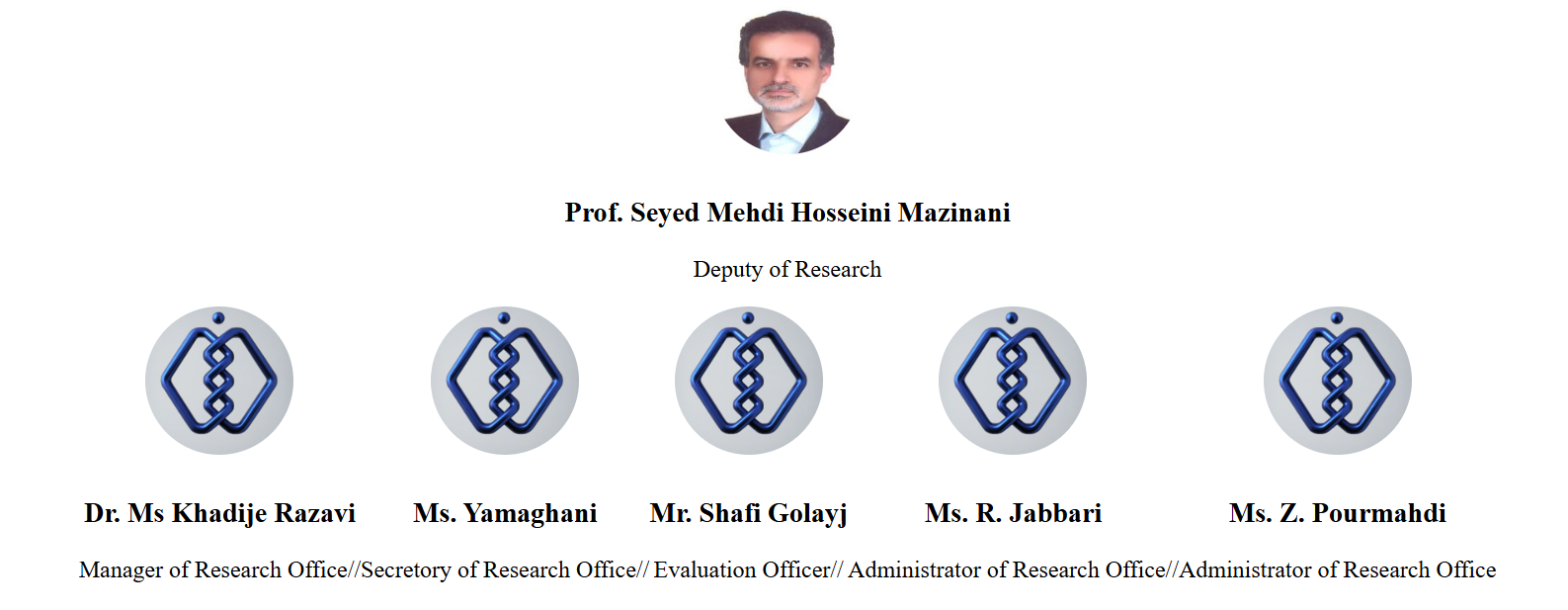
Research Deputy at NIGEB
Introduction
The Office of Research at the National Institute of Genetic Engineering and Biotechnology plays a pivotal role in guiding and promoting the scientific and educational activities of this institution. With a focus on generating applied science and technology, the Office works to address the country's needs in various fields, including health, agriculture, livestock and poultry, aquaculture, industry and mining, and the environment.
Objectives
- Generation of applied science and technology: The Office of Research focuses on generating science and technology that is focused on solving the country's problems and meeting the needs of society.
- Enhancing the level of research and educational activities: Enhancing the quality and quantity of research and educational activities of faculty members, students, and experts is one of the main tasks of this office through planning, guidance, and supervision.
- Cooperation with executive bodies: The Office of Research identifies the research needs of executive bodies and the priorities set out in strategic documents, paving the way for applied and targeted research.
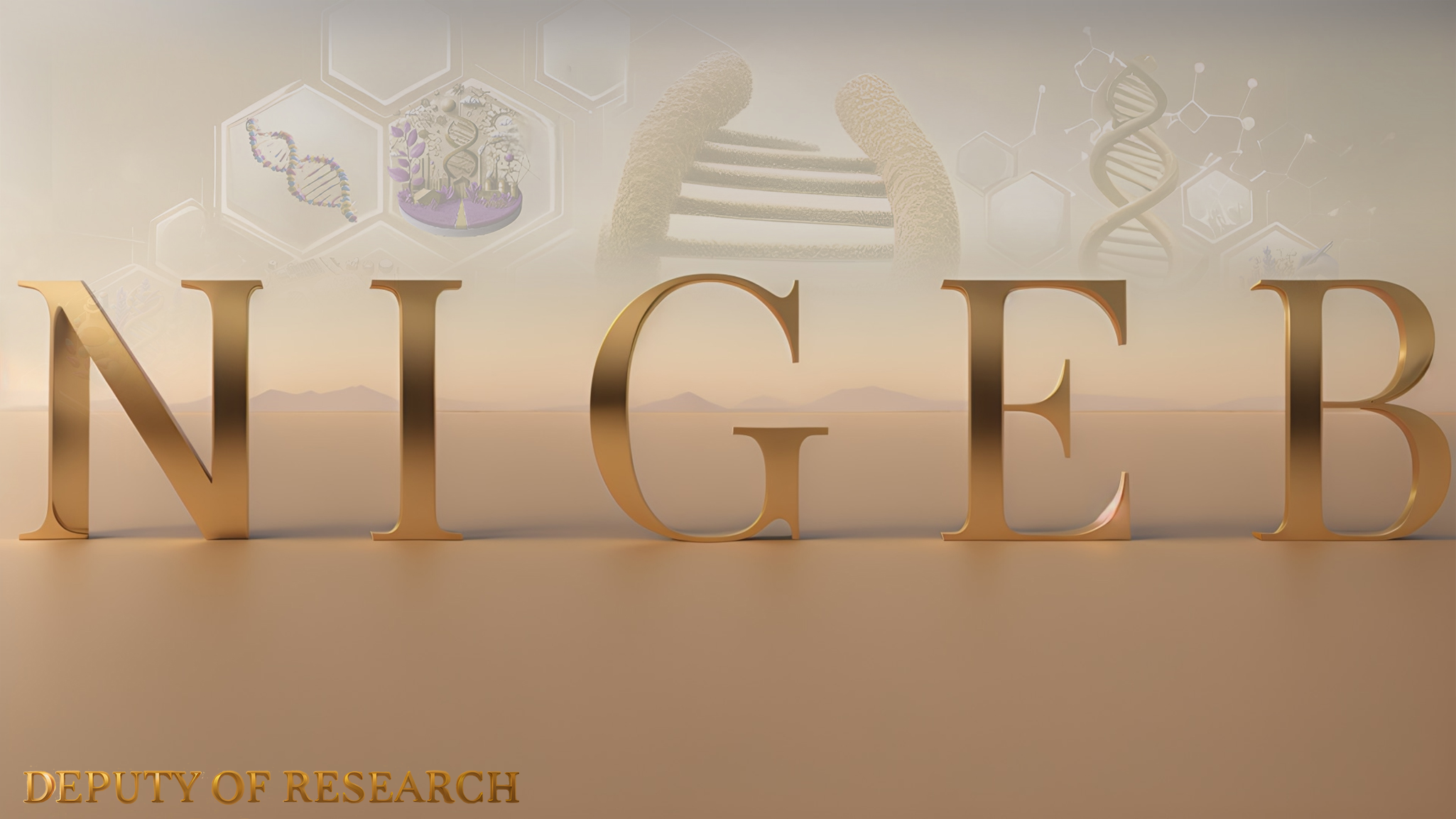
Structure
- Research Affairs Department: This department is responsible for supervising research activities, planning and implementing large-scale and priority projects, and monitoring and evaluating research projects.
- Educational Department: This department is responsible for planning and coordinating educational programs, admitting students, assigning supervisors, and conducting training courses related to research activities.
- Library and Publications: This section is responsible for planning and supervising library and publishing affairs, providing the scientific resources and documents needed by researchers, and editing and publishing scientific and specialized publications.
Key Activities
- Monitoring all research, educational, library, and publishing activities of the Institute.
- Identifying and prioritizing the research needs of executive bodies and formulating research programs in accordance with them.
- Planning and guiding the research activities of research centers, research groups, and faculty members.
- Coordinating educational programs and conducting specialized training courses.
- Formulating policies and planning for short-term specialized training courses.
- Planning and supervising library and publishing affairs and providing the scientific resources needed by researchers.
- Monitoring and evaluating research projects through the Research and Technology Council.
- Preparing, approving, and implementing research and educational regulations and procedures.
- Presenting strategic research and educational programs.
- Annual evaluation of research activities and planning to improve them.
- Planning and supervising safety and ethical issues in research.
- Forecasting the annual research and educational budget.
- Planning and striving to increase scientific cooperation with other institutions.
- Planning and supervising the optimal use of materials and equipment and providing the necessary research facilities.
- Holding meetings of committees and specialized councils related to education, research, library, publications, safety, and bioethics.
Epilogue
The Office of Research, with its cohesive organizational structure and targeted planning, plays a key role in enhancing the level of scientific and educational activities of the National Institute of Genetic Engineering and Biotechnology. Committed to generating applied science and technology, the Office is on the path to addressing the country's needs and achieving scientific and technological goals.
Postgraduate Studies & Professional Training
Postgraduate Studies & Professional Training
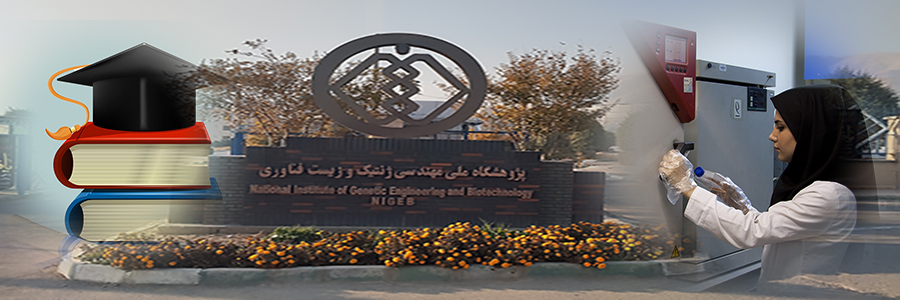
History and Objectives:
NIGEB was established as a research institution to conduct scientific, industrial, and applied research based on the resolution of the Supreme Council of Expansion dated March 30, 1987. The objectives of this institution include:
Conducting research in various fields of biological sciences, biotechnology, medicine, etc.
Training and educating specialized human resources
Activities:
The Directorate of Specialized Education and Advanced Studies of the Institute began its activities in two sections from 1999:
Admission of guest students: Admission of graduate students from other universities to take courses and conduct thesis or dissertation
Workshops: Holding short-term workshops in various fields of biological sciences and biotechnology
Student Admission:
Taking advantage of the facilities available at the Institute, including equipped laboratories and experienced faculty, this department has been admitting students independently at both the master's and doctoral levels since 2000.
Faculty Members and Achievements:
The Directorate of Specialized Education and Advanced Studies of the Institute has had over 70 faculty members who, with the efforts of experienced teachers, researchers, and scholars, have contributed significantly to the scientific community.
Vision:
It is hoped that in the not-so-distant future, by training experienced researchers and scholars and acquiring the necessary technical knowledge for the development of biological technologies, we will witness the acquisition of national power and international prestige for the Iranian nation and government in all scientific fields.
Publishing Committee & Library
Publishing Committee & Library

Introduction:
The Library of NIGEB, as one of the most specialized libraries in related fields, operates with the aim of facilitating access to and providing services to the scientific community of the country.
Objectives:
- Collection of scientific and specialized resources: This library focuses on subjects related to the activities of the institute, collecting and organizing scientific and specialized resources, both printed and digital.
- Provision of services to the scientific community: The library aims to facilitate access to required resources and enhance the level of knowledge and awareness within the scientific community of the country by offering various services.
Activities:
- Selection and collection of resources: The library continuously identifies, selects, and collects scientific and specialized resources relevant to the fields of the institute's activities.
- Organization of resources: The collected resources are organized according to standard library and information systems to enable search and access for visitors.
- Loan services: The library provides loan services for books and other resources to its members.
- Reference services: Librarians assist visitors in searching for information and finding the required resources by providing reference services.
- Information dissemination services: The library engages in information dissemination services, including publishing newsletters, brochures, and subject indexes.
- Conducting training courses: In order to enhance the knowledge and skills of visitors, the library organizes various training courses.
Science Survey Committee
Science Survey Committee
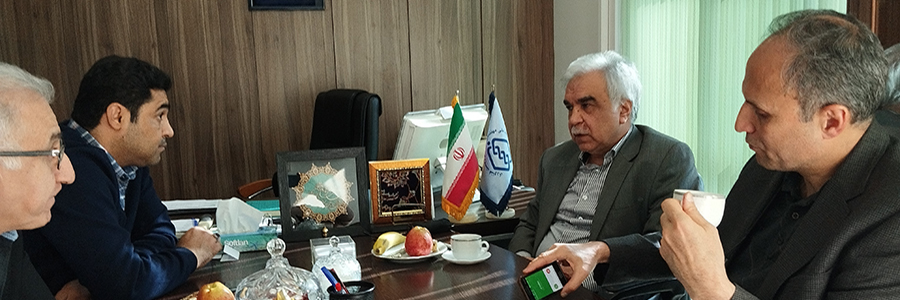
Introduction:
The Committee for Publication of Scientific Works of the National Institute of Genetic Engineering and Biotechnology was established in 2001 with the aim of publishing and promoting science and knowledge in areas related to the institute's activities. This committee consists of the following members:
- Vice President for Research (Committee Chair)
- Director of the Library and Documentation Center (Committee Secretary)
- Director of Publications
- Representatives from support and technology departments
- Representatives from research centers (faculty members familiar with publishing and research matters)
Duties:
- Reviewing works submitted to the committee based on existing guidelines and protocols
- Setting priorities, policies, and publication strategies within the framework of the institute's objectives
- Guiding researchers, authors, and university translators towards the writing and editing of valuable scientific works
- Publishing original and translated works authored by institute faculty members and other scientific and academic institutions
- Drafting and approving executive regulations for the committee's activities
- Handling matters related to the intellectual and material rights of authors, reviewers, and editors
- Arranging and supervising contracts and monitoring their proper execution
- Deciding on the format, edition, print run, and pricing of works
- Making decisions and necessary coordination for editing, proofreading, typesetting, cover design, printing, editing, and distribution of published books
- Obtaining ISBN, FIPA, printing licenses, announcing receipt, and completing other necessary administrative procedures
Objectives:
- Facilitating the creation and improvement of motivation among faculty members and researchers to increase scientific publication activities in the fields of biotechnology and genetics
- Guiding the authoring and translation of books related to biotechnology and genetics
- Printing and publishing the works of researchers and their research achievements in the field of biotechnology and genetics
- Providing the groundwork for the qualitative and quantitative growth of the institute's publications
- Recognizing the scientific and research capabilities of Iranian scientists to scholars from other countries through the publication and dissemination of their works
- Assisting in the knowledge enhancement of faculty members, students, researchers, and other members of society through the publication of valuable works by researchers and scholars
Achievements:
- So far, 40 book titles have been published by the publication committee.
- Several other books are in various stages of review, editing, etc.
Epilogue:
The Committee for Publication of Scientific Works of the National Institute of Genetic Engineering and Biotechnology, relying on the expertise and experience of its members, strives to contribute to the advancement of scientific and technological levels of the country by publishing and promoting science and knowledge in related fields.
Biosafety & Bioethics Committees
Biosafety & Bioethics Committees
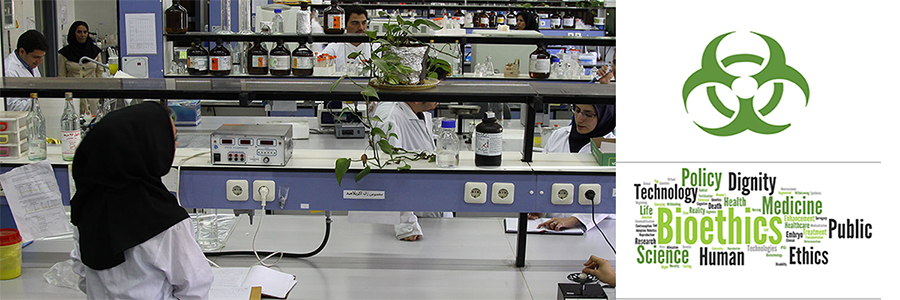
Research Ethics
The ultimate goal of all belief and value systems is to attain true and genuine perfection. Righteousness and adherence to dos and don'ts play a significant role in human beings' achievement of this perfection. Every human being, by virtue of being human and also by virtue of being purposeful, needs to know the principles that outline for them what they should do and what they should not do.
Moreover, a researcher has a specific duty. A researcher is in search of truth, and truth is the point of their perfection. They are committed to using their abilities and inquisitive spirit to discover the truth and disseminate it honestly. Undoubtedly, having a value system and adhering to ethical principles helps them in choosing a research topic, in the research process, and in making better and more accurate judgments.
Code of Research Ethics:
The Code of Research Ethics is a set of rules or guidelines that define the ethical boundaries of research components. Adhering to research ethics is not only the responsibility of researchers, but also an important part of the ethics of research organizations or those responsible for research, which can be referred to as the ethical principles of research organizations.
Major research decisions play a very important role in guiding research and researchers, and undoubtedly double the need for the development of ethical principles for research organizations. Therefore, having a healthy research community requires both researchers and research organizations to adhere to the ethical principles of research.
Some dos and don'ts in research ethics:
Honesty and integrity:
- Providing accurate and complete information at all stages of research
- Not falsifying or fabricating data
- Not plagiarizing the work of others
Trustworthiness:
- Protecting the privacy of individuals
- Not misusing confidential information
- Citing sources correctly
Justice and fairness:
- Not discriminating against individuals
- Respecting the rights of all individuals
- Distributing the benefits and harms of research fairly
Accountability:
- Being accountable for the results of research
- Compensating for any damages
- Preserving and maintaining research data and documents
Epilogue:
Adhering to research ethics is a guarantee of the health and dynamism of the scientific community. Commitment to the ethical principles of research is not only in the interest of researchers and research organizations, but also in the interest of society and humanity.
Some additional points:
- The Code of Research Ethics is based on the principles of respect for persons, beneficence, and justice.
- The Code of Research Ethics applies to all research, regardless of the field of study or the methods used.
- Researchers are responsible for ensuring that their research complies with the Code of Research Ethics.
- Research organizations are responsible for creating a culture of ethics and integrity within their organizations.
The Code of Research Ethics is an important tool for ensuring that research is conducted in a responsible and ethical manner. By adhering to the Code, researchers can help to ensure that their research is beneficial to society and that the rights of all participants are protected.
Part Two: Principles of Research Ethics
Chapter One: Ethical Principles in Selecting a Topic and Conducting Research
Selecting a Topic:
- Choose topics that benefit society.
- Avoid topics that could harm society.
- Consider ethical and human values when choosing a topic.
Conducting Research:
- Adhere to ethical principles in all stages of research.
- Respect the rights of individuals and protect their privacy.
- Do not misuse confidential information.
- Cite sources correctly.
Publishing Results:
- Present research results accurately and honestly.
- Avoid exaggerating or distorting results.
- Consider the audience and present results in a language that they can understand.
Chapter Two: Ethical Principles in Writing and Publishing an Article
Originality:
- Present new and original material.
- Avoid plagiarism.
- Cite sources correctly.
Honesty:
- Provide accurate and complete information.
- Do not falsify or fabricate data.
- Avoid exaggeration or hyperbole.
Transparency:
- State all information related to the research method, findings, and results.
- Do not hide important information.
- Disclose conflicts of interest.
Chapter Three: Ethical Principles in Reviewing and Editing an Article
Impartiality:
- Review and edit articles without bias or prejudice.
- Consider only scientific criteria when reviewing an article.
Confidentiality:
- Maintain the confidentiality of article information before publication.
- Do not disclose article information to others.
Respect:
- Respect the opinions and views of the authors.
- Provide constructive feedback and suggestions.
Chapter Four: Ethical Principles in the Use of Resources
Proper Use of Resources:
- Use reliable and credible sources.
- Cite sources correctly.
- Avoid plagiarism.
Protecting the Rights of Creators:
- Do not use the work of others without permission.
- Obtain permission from creators before using their work.
Respecting Laws and Regulations Related to Intellectual Property Rights:
- Respect the intellectual property rights of others.
- Do not violate copyright laws.
Conclusion:
Adhering to the principles of research ethics throughout all stages of research, from selecting a topic to publishing results, is essential. This helps to improve the quality of research, maintain the health of the scientific community, and ensure the rights of individuals.
Additional points:
- The principles of research ethics are based on the principles of respect for persons, beneficence, and justice.
- The principles of research ethics apply to all research, regardless of the field of study or the methods used.
- Researchers are responsible for ensuring that their research complies with the principles of research ethics.
- Research organizations are responsible for creating a culture of ethics and integrity within their organizations.
The principles of research ethics are an important tool for ensuring that research is conducted in a responsible and ethical manner. By adhering to these principles, researchers can help to ensure that their research is beneficial to society and that the rights of all participants are protected.
Powered By Liferay
Designed by: Mehdi Nikzad & Kamahldin Haghbeen
Last modification 13 Aug 2024 - 00:00:00
Feedback to: intloffice@nigeb.ac.ir

